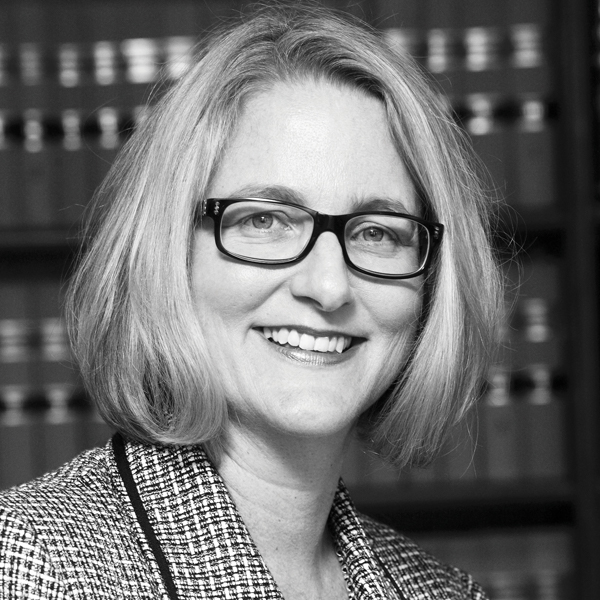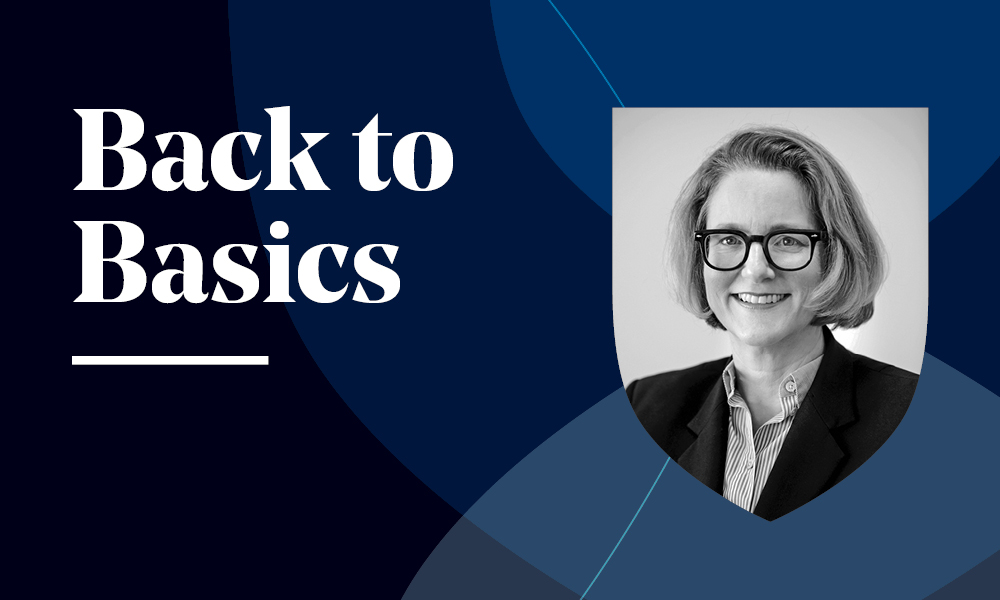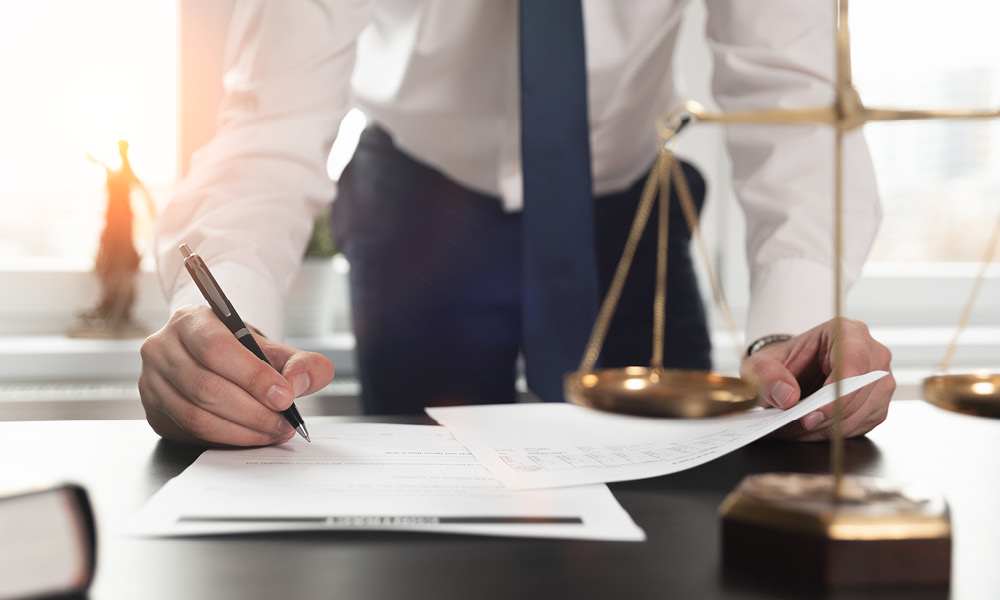This article highlights particular considerations for practitioners when briefing an expert in the Federal Court.
The court has a guide to expert evidence and expert witnesses (the guide) which directs practitioners to read and become familiar with the Evidence Act 1995 (Cth) (especially Part 3.3) and Part 23 of the Federal Court Rules (FCR), as well as the Expert Evidence Practice Note,1 the Central Practice Note2 (especially section 11) and the Survey Evidence Practice Note.3
Of these, the most important is the Expert Evidence Practice Note.
Providing the Expert Evidence Practice Note to the expert
The expert should, at the earliest opportunity, be provided with a copy of the Expert Evidence Practice Note, including the Harmonised Expert Witness Code of Conduct (which is Annexure A to the practice note) (code).4 The expert must read the code and agree to be bound by it.5
For example, the code states that an expert witness is not an advocate for a party and has a paramount duty, overriding any duty to the party to the proceedings or other person retaining the expert witness, to assist the court impartially on matters relevant to the area of expertise of the witness.6
Interacting with the expert7
Parties and their legal representatives should never view an expert witness retained (or partly retained) by them as that party’s advocate or ‘hired gun’. Equally, they should never attempt to pressure or influence an expert into conforming his or her views with the party’s interests.
A party or legal representative should be cautious not to have inappropriate communications when retaining or instructing an independent expert, or assisting an independent expert in the preparation of his or her evidence.
Any witness retained by a party for the purpose of preparing a report or giving evidence in a proceeding should, at the earliest opportunity, be provided with all relevant information (whether helpful or harmful to that party’s case) so as to enable the expert to prepare a report of a truly independent nature.
Any questions or assumptions provided to an expert should be provided in an unbiased manner and in such a way that the expert is not confined to addressing selective, irrelevant or immaterial issues.
Content of expert report8
The contents of an expert’s report must conform with the requirements set out in the code. In addition, the contents of the report must also comply with rule 23.13 FCR. Given that the requirements of that rule significantly overlap with the requirements in the code, an expert, unless otherwise directed by the court, will be taken to have complied with the requirements of rule 23.13 FCR if that expert has complied with the requirements in the code and has complied with the additional following requirements, being that the expert shall:
(a) acknowledge in the report that:
(i) the expert has read and complied with the Expert Evidence Practice Note and agrees to be bound by it, and
(ii) the expert’s opinions are based wholly or substantially on specialised knowledge arising from the expert’s training, study or experience9
(b) identify in the report the questions that the expert was asked to address
(c) sign the report and attach or exhibit to it copies of:
(i) documents that record any instructions given to the expert, and
(ii) documents and other materials that the expert has been instructed to consider.
Where an expert’s report refers to photographs, plans, calculations, analyses, measurements, survey reports or other extrinsic matter, these must be provided to the other parties at the same time as the expert’s report.
Clause 3 of the code provides that every report prepared by an expert witness for use in court shall clearly state the opinion or opinions of the expert and shall state, specify or provide:
(a) the name and address of the expert
(b) an acknowledgment that the expert has read the code and agrees to be bound by it
(c) the qualifications of the expert to prepare the report
(d) the assumptions and material facts on which each opinion expressed in the report is based [a letter of instructions may be annexed]. As to this, an expert witness’ opinion evidence may have little or no value unless the assumptions adopted by the expert (that is, the facts or grounds relied upon) and his or her reasoning are expressly stated in any written report or oral evidence given10
(e) the reasons for and any literature or other materials utilised in support of such opinion
(f) (if applicable) that a particular question, issue or matter falls outside the expert’s field of expertise
(g) any examinations, tests or other investigations on which the expert has relied, identifying the person who carried them out and that person’s qualifications
(h) the extent to which any opinion which the expert has expressed involves the acceptance of another person’s opinion, the identification of that other person and the opinion expressed by that other person
(i) a declaration that the expert has made all the inquiries which the expert believes are desirable and appropriate (save for any matters identified explicitly in the report), and that no matters of significance which the expert regards as relevant have, to the knowledge of the expert, been withheld from the court
(j) any qualifications on an opinion expressed in the report without which the report is or may be incomplete or inaccurate
(k) whether any opinion expressed in the report is not a concluded opinion because of insufficient research or insufficient data or for any other reason, and
(l) where the report is lengthy or complex, a brief summary of the report at the beginning of the report.
Clause 5 of the code enables an expert to cross-refer to material in an earlier report without repeating it.
Case management
If parties intend to rely on expert evidence in a proceeding, at the earliest opportunity, they should consider between them and advise the court of their views on how expert evidence may best be managed.11 In particular,12 the parties should address:
(a) whether a party should adduce evidence from more than one expert in any single discipline
(b) whether a common expert is appropriate for all or any part of the evidence
(c) the nature and extent of expert reports, including any in reply
(d) the identity of each expert witness that a party intends to call, their area(s) of expertise and availability during the proposed hearing
(e) the issues that it is proposed each expert will address. It will often be desirable, before any expert is retained, for the parties to attempt to agree on the question or questions proposed to be the subject of expert evidence as well as the relevant facts and assumptions.
(f) the arrangements for a conference of experts to prepare a joint report. This is addressed further below.
(g) whether the evidence is to be given concurrently and, if so, how. This is also addressed below. And
(h) whether any of the evidence in chief can be given orally.
A party can make an application for a particular order in relation to expert evidence pursuant to rule 23.15 FCR.
Expert conferences
The guide provides that the court may require experts (who are to give or have given reports) to meet for the purpose of identifying and addressing the issues in dispute between the experts (conference).
It further states that:
- The purpose of the conference is for the experts to have a comprehensive discussion of issues relating to their field of expertise, with a view to identifying key issues and areas of agreement and disagreement.
- The conference is attended only by the experts and any conference facilitator (being a registrar or some other suitably qualified person).
- Unless the court orders otherwise, the parties’ lawyers will not attend the conference but will be provided with a copy of any conference report.
The timing and location of the conferences, and the preparation for same, is also addressed in the guide.
Parties, their lawyers and the experts should also read and be familiar with section 7 of the Expert Evidence Practice Note and clause 7 of the code, which relate to expert conferences and joint reports.
Concurrent evidence of experts
Depending on the nature of the expert evidence and the proceeding generally, the court may order experts to give some or all of their evidence concurrently (that is, at the same time) at the final (or other) hearing.
In that event, parties and the experts should be familiar with the Concurrent Expert Evidence Guidelines in Annexure B to the Expert Evidence Practice Note. If an order is made for concurrent expert evidence to be given at a hearing, any expert to give such evidence should be provided with the Concurrent Evidence Guidelines well in advance of the hearing and should be familiar with those guidelines before giving evidence.13
Kylie Downes QC is a member of Northbank Chambers and the Proctor Editorial Committee.
Footnotes
1 fedcourt.gov.au/law-and-practice/practice-documents/practice-notes/gpn-expt.
2 fedcourt.gov.au/law-and-practice/practice-documents/practice-notes/cpn-1.
3 fedcourt.gov.au/law-and-practice/practice-documents/practice-notes/gpn-surv.
4 Expert Evidence Practice Note at [3.3]; also rule 23.12 FCR.
5 Expert Evidence Practice Note at [4.4]; also rule 23.13 FCR.
6 Code at [2].
7 Expert Evidence Practice Note, section 3.
8 Expert Evidence Practice Note, section 5.
9 This adopts the wording of section 79 Evidence Act 1995 (Cth).
10 Expert Evidence Practice Note at [2.4].
11 See the guide.
12 Expert Evidence Practice Note at [6.1] and [6.2].
13 Expert Evidence Practice Note at [8.3].












Share this article